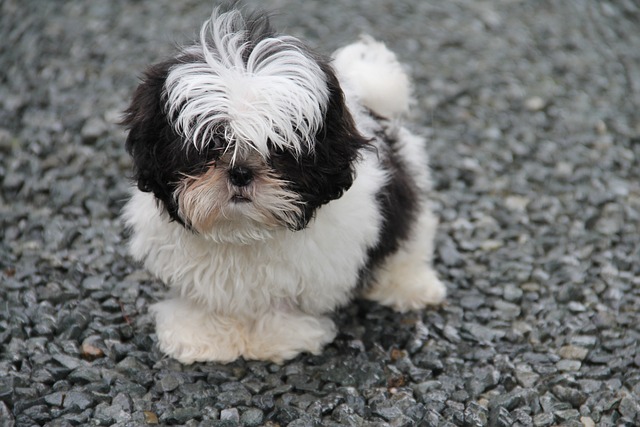


The Shih Tzu is a small, friendly, and affectionate toy dog breed known for its luxurious coat and charming personality. Originally bred to be a companion dog, the Shih Tzu is gentle, alert, and sociable. Despite its small size, this breed is sturdy and has a playful, outgoing temperament. Shih Tzus are ideal pets for families, singles, and those living in apartments due to their adaptable nature.
The Shih Tzu is an ancient breed with origins in Tibet, where it was bred to be a companion for Chinese royalty. It is believed to have been created by crossing the Pekingese with the Tibetan Mountain Dog. The breed’s name, Shih Tzu, means "lion dog" in Chinese, which reflects its resemblance to traditional Chinese lion statues. Shih Tzus were highly favored in the imperial palaces of China and were often given as gifts to royalty. They were brought to the Western world in the 20th century and have since become popular companion dogs worldwide.
The Shih Tzu is a small dog with a sturdy, compact body. They typically weigh between 9 to 16 pounds and stand around 9 to 10.5 inches tall at the shoulder. Shih Tzus have a long, flowing double coat that requires regular grooming to prevent matting and tangling. The coat comes in a variety of colors, including gold, white, black, brown, and combinations of these. Their distinctive face is characterized by a flat muzzle, large dark eyes, and a characteristic beard and mustache. They also have a tail that curls over their back, adding to their unique appearance.
Shih Tzus are known for their affectionate and friendly nature. They are loyal to their owners and enjoy being around people, making them excellent family pets. They are typically good with children and other pets, but their small size means they should be handled gently. Shih Tzus are also known to be alert and can be good watchdogs, though they are not overly aggressive. Their playful, affectionate personality makes them great companions, but they may have a slightly stubborn streak, especially when it comes to training.
Shih Tzus have moderate exercise needs. While they enjoy playing and walking, they are not as energetic as some other breeds. A daily walk and short play sessions are usually sufficient to keep them healthy and happy. Because they are small dogs, they are well-suited for apartment living, but it’s important to provide them with mental stimulation to prevent boredom. Shih Tzus should not be overexerted, especially in hot weather, as their short snouts can make breathing more difficult during intense physical activity.
Shih Tzus are intelligent but can sometimes be a bit independent and stubborn, making training a challenge at times. Positive reinforcement, such as treats and praise, works best for motivating them. Early socialization is important to help them become well-rounded dogs and to prevent any potential issues with other pets or strangers. While they are generally friendly and sociable, Shih Tzus can develop certain behavioral issues if not properly trained and socialized, such as excessive barking or separation anxiety.
The Shih Tzu is generally a healthy breed, but like all dogs, they are prone to certain health issues. Common problems in the breed include brachycephalic syndrome (related to their short muzzle), hip dysplasia, patellar luxation, and eye conditions such as cataracts or dry eye. Regular veterinary check-ups, a healthy diet, and maintaining a proper weight are essential for their health. Their long coat requires regular grooming, including daily brushing, to prevent tangling and matting. Additionally, Shih Tzus should have their ears cleaned regularly to avoid infections due to their floppy ears.
The average lifespan of a Shih Tzu is between 10 to 16 years, with many living into their teens with proper care. Their lifespan can be influenced by factors such as genetics, diet, exercise, and regular veterinary care. Maintaining a healthy weight and addressing health concerns promptly can help extend their life expectancy and improve their overall quality of life.
© copyright Dog Compendium 2024 - 2026